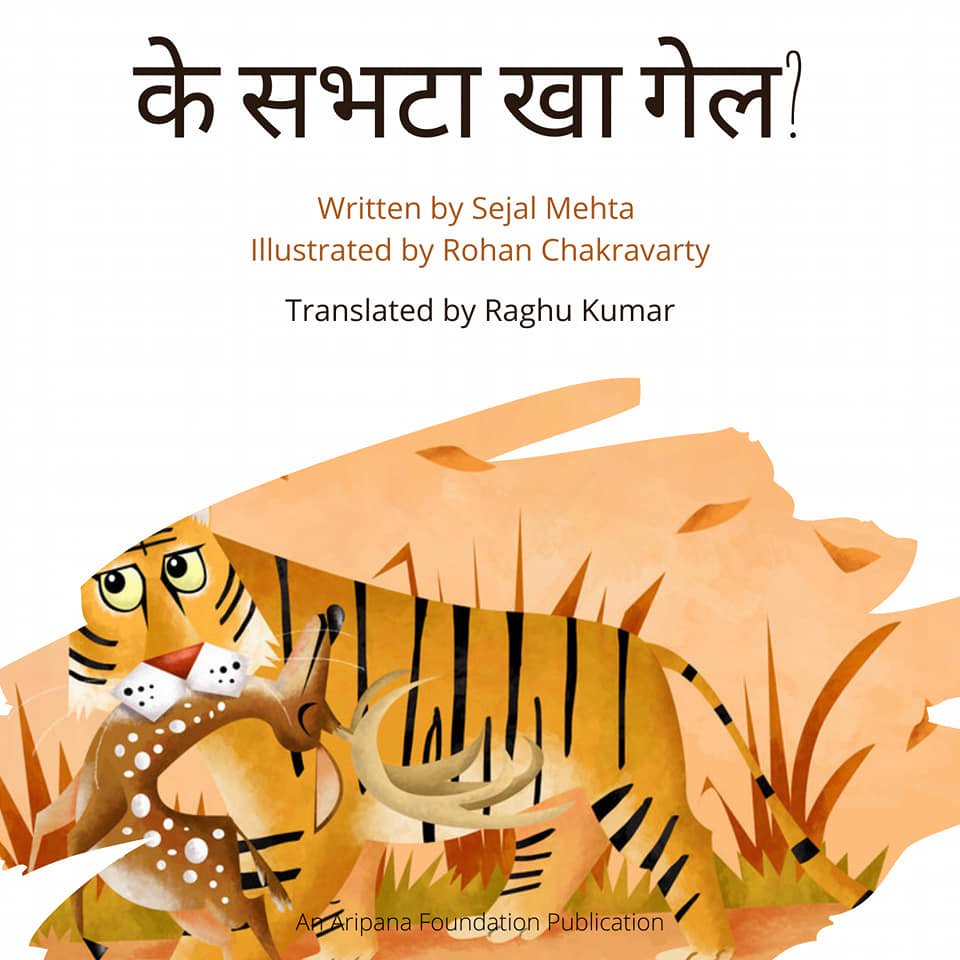This post was written just as 2020 was drawing to a close, as part of our favourite and mandatory year end reflective exercise!
2020 – definitely not just another year, thanks to Covid – is about to end! Another year, hopefully different, is about to begin. For us, at Aripana, this moment is an opportunity to reclaim agency, reaffirm how we’ll choose to act, the values we will hold and the difference we would like to make!
2020 brought with us on board, Piyush Singh Rathore, Program Officer and Sustainability Educator, Aripana Foundation. Piyush is a precious addition to the team and one of the highlights of 2020.
JANUARY2020: The delightful Maithili books for children created by Team Aripana, reached hundreds of children and parents through Aripana’s presence at various literature festivals around the country. See glimpses here.
FEBRUARY2020: Maithili is the mother language of thousands of children, in which they deserve access to quality literature! Team Aripana was delighted to celebrate the grandeur and the mithaas of the Maithili language across Delhi, Bangalore and Darbhanga with several Maithil children on International Mother Language Day, 21st February, 2020! May children get good books in Maithili, read Maithili, love Maithili, enrich it and be enriched by it! May we be the catalysts to this, always. See glimpses here.
March 2020: Proud moment for the Maithili language as the small but passionate team at Aripana Foundation made it possible, *for the first time ever* to type books for children in Maithili on one of the pioneering platforms in the world in the space of regional children’s literature – the Pratham Books’ StoryWeaver platform! Proud to have collaborated with Pratham Books’ Storyweaver, Google and AI4Bharat for this milestone! You too can log into Storyweaver and now choose Maithili as a language to create books for children in. It’ll make us super duper over the moon happy to know more and more people are using the tool Aripana Foundation helped build, for creating books for children in Maithili! See more here.
May 2020: As the pandemic spread, the situation in India worsened and the migrant labour crises showed us the ugly side of too many things! While sadness and a feeling of desolation and helplessness engulfed as all, 280 vulnerable families of the Kabir Chak Panchayat, Darbhanga were provided food relief during the peak of lockdown and rising Covid numbers by Aripana Foundation,with support from Wipro Foundation! Families and individuals most in need – including widows, daily wage labourers and sanitation workers received ration and basic sanitation kits comprising of rice, dal, chura, sattu, oil, salt, spices, sugar, tea and the equally critical, soaps and masks! Read the report here.
June 2020: Mithila is a region ravaged by floods, endemic poverty and lack of suitable opportunities for its youth. Aripana Foundation embarked on its journey to support schools of Mithila to strengthen environment and sustainability education! 6 government schools from Mithila participated in Wipro Earthian, India’s largest environment and sustainability education program for schools and colleges! In the history of this 11 year old Wipro Earthian program, children & teachers from Mithila have now participated for the first time! We are confident this participation will grow every year leading Maithil children and youth to understand, love and learn to protect their Mithiladham! See here.
August2020: Maithili audio books are now available for children across the world, through Aripana Foundation’s YouTube channel! This has brought so many wonderful Maithili books for children newly alive! Do listen and share. See more here.
There is also now the Environment and Sustainability Education Playlist on the Aripana Foundation YouTube channel. See here.
In the month of August, Aripana Foundation was pleased to host Shri Pradip Bihari ji (recipient of the prestigious Sahitya Akademi Award, theatre aficianado, author of several short stories, novels in Maithili) in a translation webinar that discussed nuances of translating children’s books from other languages, into Maithili. See here.
October 2020: Team Aripana Foundation takes the number of Maithili books created for children to 150!! Some of the books are available on Pratham Books’ Storyweaver. See here. We look forward to 2021 with hope and some anxiety, but with a firm resolve that we’ll a find a way to do what needs to be done, to fulfill the organisational mission.
December 2020, the first batch of students from Mithila to participate in Wipro Foundation’s Earthian program, completed their in depth engagement with the module Waste & Sustainability, submitting the report of several months of hard work to Wipro! We wish them the best always. We hope their and our engagement with matters critical to the environment and sustainable living, never stops.




